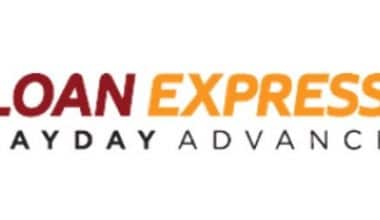Startup business loans can help new business startups to stand before getting to qualify for regular business loans. In this guide, we’ll show you how you can get both secured and unsecured business loans for your startups. First, let’s see how startup business loans work.
What Is a Startup Business Loan?
Startup business loans are a type of funding available to startups with little or no business or credit history. Term loans and SBA loans are the most prevalent types of startup loans. However, entrepreneurs may also choose company credit cards or asset-based financing. Startup owners can also use less traditional financing methods such as crowdfunding to obtain the working capital they require to launch and expand their firms.
Types of Business Loans For Startups
Here are some examples of business loans available for startups:
#1. Online Term Loans
Traditional banks and online lenders both offer term loans; however, banks may have stricter qualification standards than online lenders. Term loans from internet lenders often have maximum loan sums ranging from $250,000 to $500,000, although freshly founded businesses are unlikely to qualify for credit amounts that high. Furthermore, most online lenders demand businesses to be in operation for at least six months to a year before they can qualify.
#2. SBA Microloans
The SBA Microloan program provides qualifying business entrepreneurs with up to $50,000 in beginning loans. Terms can last up to six years. Moreso, interest rates are normally between 8% and 13%, however this varies by lender.
Loans are made available through nonprofit lenders and other financial institutions and are guaranteed by the SBA, making them more accessible to businesses with minimal financial records and credit histories. While not applicable to all firms, SBA microlenders are frequently more committed to assisting startups in underserved areas, as well as those run by women and minorities.
#3. Asset-based financing
Asset-based financing is a type of lender financing secured by the valuable assets of a firm, such as inventories, machinery and equipment, accounts receivable, and real estate. Because secured financing poses less risk to the lender, lending rules are often more liberal. This makes it a fantastic choice for businesses that do not meet the requirements for standard business loans.
Invoice factoring, one of the most frequent types of asset-based lending, entails selling outstanding invoices to a third party in exchange for a lump sum of cash—typically between 80% and 90% of the total invoice amount. This can give working capital to companies fast and without requiring them to have a solid business credit score or meet other strict borrowing standards.
#4. Personal Business Loans
A personal loan, rather than a standard business loan, may also assist startup founders. Notably, personal loans are easier to qualify for than business loans for a new business owner, especially for startups with little or no business history.
Furthermore, certain lenders’ application and approval processes may be less stringent than for a commercial loan. Startup owners may also be able to obtain cheaper annual percentage rates (APRs) than those offered by some commercial loans, however available borrowing limits are typically lower.
Borrowers who use personal loans to fund their businesses must individually repay the amount. However, because most lenders consider an applicant’s personal credit score when considering a startup business loan application, startup founders are likely to be personally liable for a startup loan as well.
However, keep in mind that using personal loan funds for business activities includes combining personal and commercial assets, which may result in bookkeeping, tax, and/or legal complications later on. Furthermore, some personal loan lenders forbid the usage of funds for business purposes, so check with your preferred lender before applying.
#5. Business Credit Cards
Business credit cards, like personal credit cards, provide revolving cash that can be used for anything from office furnishings and supplies to legal expenses, equipment, and larger purchases.
When compared to traditional loans, the application and approval procedure is speedier, and startup founders are more likely to get authorized based only on their own credit scores. Furthermore, because business credit cards are unsecured, new business owners are not required to provide valuable collateral.
Business credit cards can be used as needed, and cardholders only pay interest on any unpaid balances at the conclusion of the billing cycle, which is usually every 30 days. This makes it an excellent choice for monthly operational expenditures and other expenses that may be paid up in full each month to avoid interest. Some credit cards also have initial 0% APRs that allow customers to make interest-free purchases for six months to two years.
#6. Friends and family
With a limited credit history and financial records, it might be difficult to secure business finance as a startup. If a business owner is unable to qualify for a standard business loan or another way, such as a business credit card, or if they only qualify for a small startup business loan, they may choose to borrow from friends or relatives.
Before accepting to borrow money, entrepreneurs should ensure that they are comfortable going into what is basically a business relationship with them. This entails analyzing the business plan with the lending party, explaining their position (or lack thereof) in the business, and documenting the loan terms in writing. Ensure that all parties agree on the loan amount, payback terms, interest rate, and other essential variables to avoid future problems.
#7. Crowdfunding
If typical loan instruments are unavailable and borrowing from friends and family feels too intimate, crowdfunding may be a viable solution. Similarly, prospective borrowers who are unable to qualify for a business loan as a startup can use a crowdfunding platform such as Kickstarter or Indiegogo to gain access to funds and cover operating expenses.
To begin, select an online fundraising site, establish an account, and pick how much money you want to raise. After launching a crowdfunding campaign, users can donate varied amounts of money, which will be available as soon as the campaign concludes.
This type of business funding does not need qualifying through a financial institution, and business owners are not required to provide contributors startup shares in exchange for funds. Similarly, no interest or other lender expenses are levied to the startup.
Because of the nature of crowdfunding, this technique is best suited to startup owners that do not need to raise a significant sum of money, as well as enterprises with unique or otherwise appealing offerings. Although a thank-you gift is not required, campaigns may be more effective if businesses tempt donors with a unique product, service, or commemorative present.
#8. Grants for Small Businesses
A small business grant is money granted to startups and other enterprises to assist them in getting started and growing. Grants are made available by a variety of organizations, including state and municipal governments, the federal government, and corporations. Small company grants, unlike other starting financing sources such as loans and credit cards, do not demand payback, and business founders are not charged fees or interest.
However, this type of funding is exceedingly competitive, and applications are frequently demanding and time-consuming. Many awards also target specific business categories, such as those run by women, minorities, veterans, and immigrants. As a result, finding an acceptable open grant, preparing an application, and waiting for the award in the time available may be tough.
How to Get Business Loans For Startups
The application process for a startup business loan will differ depending on the sort of finance you pick, as well as the lender or financial institution. However, in general, you can follow these steps to obtain a loan for your new business.
#1. Determine the type of funding you require.
As a startup, it may be more difficult to obtain more traditional kinds of business capital, so consider carefully whether the type of financing is best for your needs.
You should think about how much capital you’ll need and how you’ll use it. You should also keep in mind that a loan is not always the ideal option. Instead, it may be a small-business grant, crowdfunding, or another type of finance entirely.
#2. Assess your credentials
Next, study common eligibility criteria to get a feel of where you stand before applying. If you’ve already established your firm, you should think about your time in business, credit score, and revenue.
If, on the other hand, you’re planning to start a business, you’ll want to prioritize your personal finances over your credit score.
You should also assess your available collateral and any other information that will help you improve your financial picture.
#3. Conduct lender research and comparisons
You should look at numerous lenders to find the best fit for your new venture. You’ll want a lender who can supply the financing you require while also offering competitive rates and conditions. You must also meet the lender’s qualifying conditions.
When comparing different possibilities, consider loan kinds, interest rates, repayment terms, fees, the application procedure, funding speed, and lender reputation.
#4. Gather all necessary paperwork and submit your application.
Your business loan application process will ultimately differ depending on the lender and loan type you select. However, you will usually be required to give some, if not all, of the following:
- Basic information about yourself and your company.
- Business permits or formation paperwork.
- Bank statements, both personal and business.
- Tax returns for individuals and businesses.
- Balance sheets and profit and loss statements are examples of financial statements (if your business is already operating).
- Cash flow forecasts.
- A financial business plan.
- Information obtained as a byproduct.
Your lender will almost certainly require you to sign a personal guarantee and/or place a UCC lien on your assets.
#5. Think about your possibilities.
To ensure you’re getting the greatest price for your new business, compare different loan offers. Once you’ve made a decision, go over your business loan deal carefully to ensure you understand the rates, terms, fees, and payback plan.
Unsecured Business Loans For Startups: Can I get a Loan Without a Collateral?
Business startup loans without collateral are quite rare. Any sort of company loan will demand collateral to secure the loan. However, certain forms of starting business loans, merchant cash advances, and business credit cards can be obtained without requiring collateral.
Here’s what you should know about unsecured business loans for startups.
Unsecured Loans for Small Business Startups
Finding loans that do not demand collateral is a big challenge, but there are possibilities. Let’s look at three popular options.
#1. Unsecured Business Lines of Credit
Business lines of credit are among the best types of business financing available. They provide borrowers with flexible, revolving capital whenever they require it.
If you obtain a company line of credit from a more traditional lender, you will almost definitely be required to provide collateral to secure it. However, several online alternative lenders have started offering unsecured business lines of credit in recent years, which means you don’t have to pledge specific assets to back your debt.
If you need immediate, recurring cash, as most companies do, this is the ideal startup company loan without a collateral requirement.
#2. Cash Advances from Merchants
You’re bound to stumble across merchant cash advances if you’re looking for small company starting loans with no collateral required.
A merchant cash advance, often known as a cash advance loan, is a quick and simple way to obtain a beginning business financing without requiring collateral.
A merchant cash advance company can provide you with a large sum of funds to help you build your business, and you’ll repay the lender by allowing them to take a percentage of your daily credit card transactions.
Merchant cash advance firms can satisfy your financing demands when you don’t qualify for conventional business loans because there is no collateral necessary and bad credit is acceptable. However, proceed with caution: Merchant cash advances are the most expensive type of credit available.
#3. Commercial Credit Cards
We advocate business credit cards over merchant cash advances if you’re just getting started and need small business startup loans with no collateral. In fact, if you’re seeking for starting business loans with no collateral, a business credit card can be your best alternative.
You don’t want to ask for too much funding in the early phases of your firm since you don’t know what kinds of charges will come your way, and you don’t want to take on more loans than you can handle. In this instance, company credit cards are an excellent choice.
Specifically, 0% introductory APR business credit cards are a wonderful instrument for paying for expenses up in advance and repaying them interest-free over a certain number of months. Just keep in mind that you’ll want to make sure you can pay off your balance before the intro period ends and a variable APR takes effect based on the market and your creditworthiness.
How Do Unsecured Business Loans For Startups Work?
Perhaps you don’t have any collateral to offer as security for your starting business loan, or you don’t want to risk your assets. In any case, you can still obtain a small business loan for your firm.
Keep in mind, however, that when lenders make unsecured company loans, they are taking a higher risk on the borrower. If the borrower is unable to repay their debt, the lender lacks a distinct asset that can be easily liquidated for cash.
Because unsecured business loans are made to borrowers with riskier portfolios, interest rates tend to be higher.
In Conclusion,
Startup business loans can assist new enterprises in covering startup expenditures such as equipment, inventory, payroll, utilities, and insurance.
Although traditional business loans may be more difficult for startups to qualify for, some online lenders offer financing to entrepreneurs with one year or less in operation. Alternative funding alternatives for new firms may include grants and business credit cards.
Related Articles
- HOW TO GET STARTUP BUSINESS LOANS WITH NO REVENUE IN 2023
- Best Business Credit Cards For Startups In 2023
- UNSECURED BUINESS FINANCE: What it is and How it works
- UNSECURED DEBT: Definition, Types and Examples
- UNSECURED PERSONAL LOAN: Loan Without Collateral






